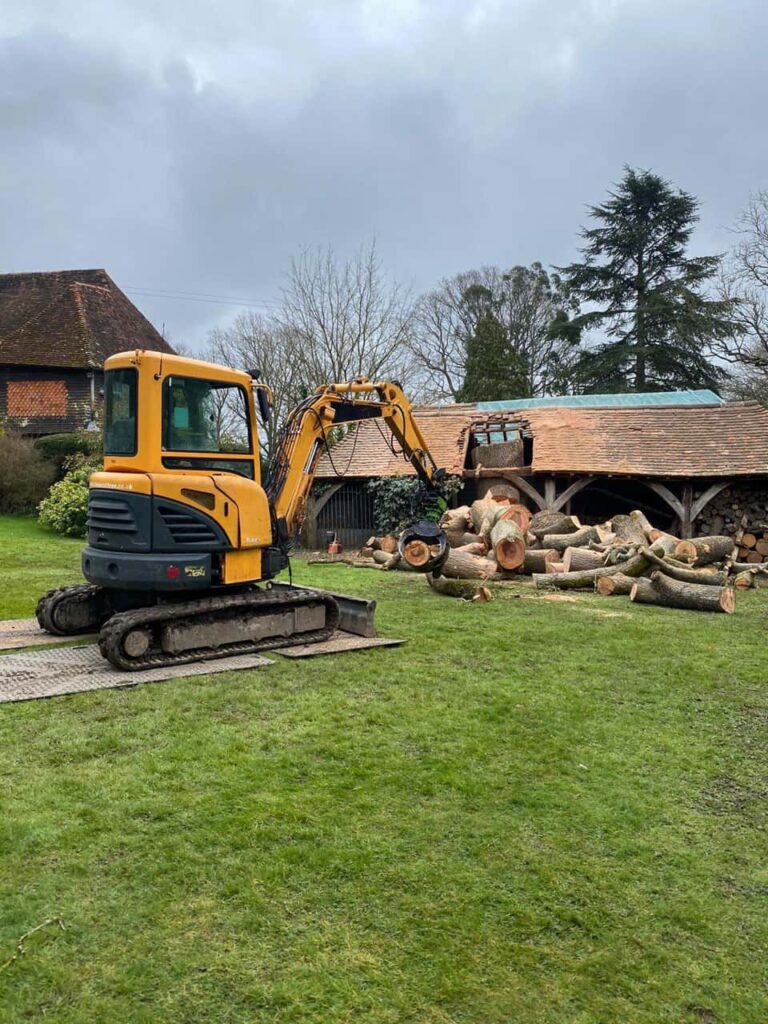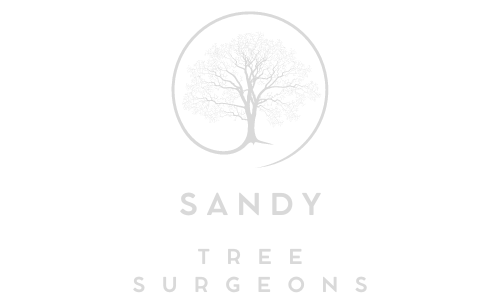Tree Surgery and Pollinators: Promoting Biodiversity
Introduction: In the intricate tapestry of ecosystems, trees and pollinators share a harmonious relationship, each depending on the other for survival. At Sandy Tree Surgeons, we recognise pollinators’ crucial role in maintaining biodiversity and food security. This blog post will explore the intricate connection between tree surgery and pollinators, highlighting how responsible tree care practices can support these vital species and promote biodiversity.
The Importance of Pollinators
Pollinators, including bees, butterflies, moths, birds, and bats, facilitate the reproduction of flowering plants by transferring pollen from one flower to another. This process results in the production of seeds, fruits, and nuts. Pollinators are essential for:
- Biodiversity: They contribute to the diversity of plant species by enabling cross-pollination.
- Food Production: Many crops that feed the world rely on pollinators for successful fruiting and seed production.
- Ecosystem Health: Pollinators support healthy ecosystems by helping plants reproduce, which, in turn, sustains other wildlife.
Tree Surgery and Pollinators
Tree surgeons play a significant role in the conservation of pollinators by adopting responsible tree care practices:
- Selective Pruning: Careful techniques promote tree health and flowering, providing abundant nectar and pollen sources for pollinators.
- Tree Selection: Recommending native and flowering tree species that provide essential resources for pollinators.
- Disease Management: Addressing tree diseases promptly to prevent the spread of pathogens that can harm pollinators.
- Nesting Sites: Protecting and preserving potential nesting sites, such as tree hollows and deadwood, for native pollinators.
Promoting Pollinator-Friendly Trees
Certain tree species are particularly attractive to pollinators due to their nectar-rich flowers and long blooming periods. Here are a few pollinator-friendly trees to consider planting:
- Flowering Cherry Trees: These trees produce beautiful blossoms and are a favourite of bees and butterflies.
- Crabapple Trees: Crabapples provide a wealth of nectar and pollen, attracting various pollinators.
- Linden Trees: Linden, or basswood, trees produce fragrant, nectar-rich flowers that delight bees.
- Black Locust Trees: Loved by honeybees, these trees are known for their sweetly scented, white flowers.
- Magnolia Trees: Magnolias offer large, showy blooms that attract bees and butterflies.
Conclusion: Tree surgery and pollinator conservation go hand in hand, contributing to the preservation of biodiversity and the health of our planet. We understand the delicate balance between tree care and pollinator support at Sandy Tree Surgeons. By embracing responsible tree care practices and planting pollinator-friendly trees, we can ensure that these essential species continue to thrive.
Call us on: 01767 668 993
Click here to find out more about Sandy Tree Surgeons
Click here to complete our contact form and see how we can help with your tree’s needs.

